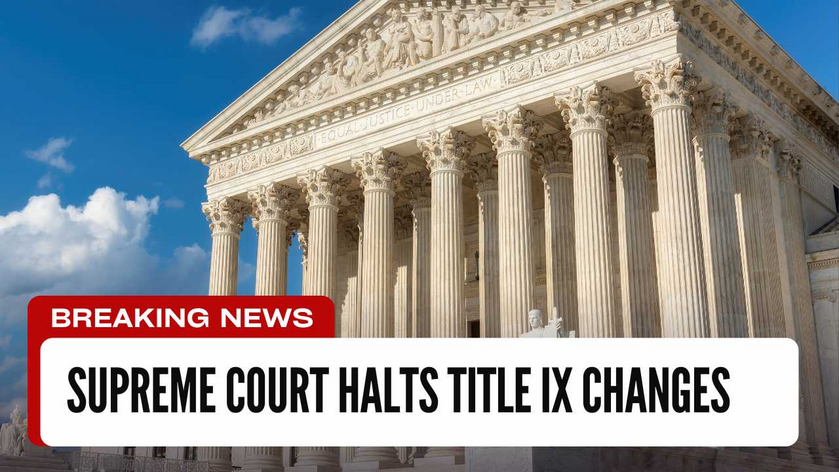WASHINGTON, D.C. — In a narrow 5-4 decision, the U.S. Supreme Court has denied the Biden administration's emergency request to partially reinstate its new Title IX rule, which would extend protections against sex discrimination in schools to include sexual orientation and gender identity for the first time.
The rule, set to take effect on August 1, has faced legal challenges from Republican state attorneys general, who successfully persuaded lower courts to block its implementation in roughly half the country. The Biden administration sought to have the Supreme Court limit those injunctions, asking the justices to allow most of the new Title IX regulations to go forward while focusing the injunctions only on gender identity protections, the primary issue at the center of the lawsuits.
The proposed changes to Title IX include a range of updates, such as accommodations for pregnant students, protections against retaliation, and new recordkeeping requirements. The administration argued that the lower courts had blocked provisions that were unrelated to the core disputes about gender identity.
However, in an unsigned order, the Supreme Court declined to intervene, stating that the Biden administration had not provided enough justification to overturn the lower courts' interim rulings. "On this limited record and in its emergency applications, the Government has not provided this Court a sufficient basis to disturb the lower courts’ interim conclusions that the three provisions found likely to be unlawful are intertwined with and affect other provisions of the rule," the court’s order stated.
Justice Sonia Sotomayor, joined by liberal Justices Elena Kagan and Ketanji Brown Jackson, as well as conservative Justice Neil Gorsuch, dissented. Sotomayor argued that the lower court injunctions were overly broad, blocking the government from enforcing regulations that were not directly challenged in the lawsuits. "By blocking the Government from enforcing scores of regulations that respondents never challenged and that bear no apparent relationship to respondents’ alleged injuries, the lower courts went beyond their authority," Sotomayor wrote.
The court’s decision is not the final word on the matter, as the lawsuits challenging the new Title IX rule will continue in the lower appeals courts. The case could return to the Supreme Court at a later stage.
The Biden administration's Title IX updates follow the Supreme Court’s 2020 ruling in Bostock v. Clayton County, which held that an employer who fires an individual based on sexual orientation or gender identity violates Title VII of the Civil Rights Act of 1964. The administration has argued that its new rule is consistent with that precedent.
While Friday’s decision maintains the lower court injunctions for now, Justice Gorsuch’s dissent alongside the liberal justices echoes his role in the 2020 Bostock case, where he authored the majority opinion supporting LGBTQ+ protections.




















